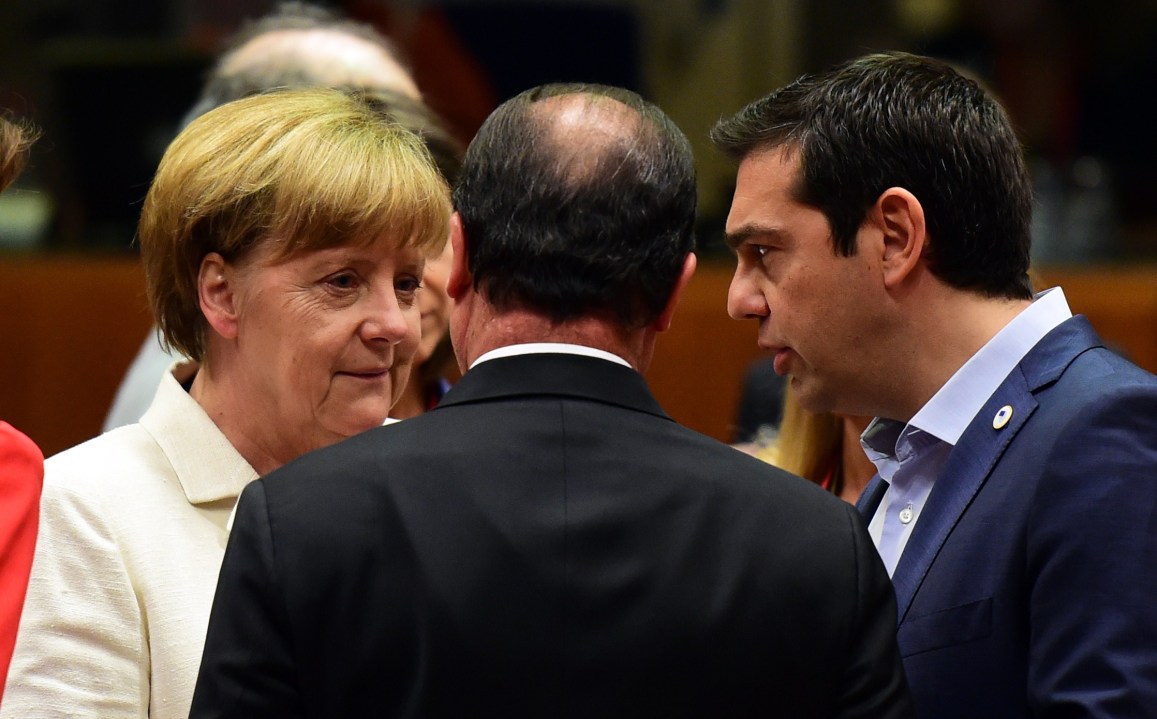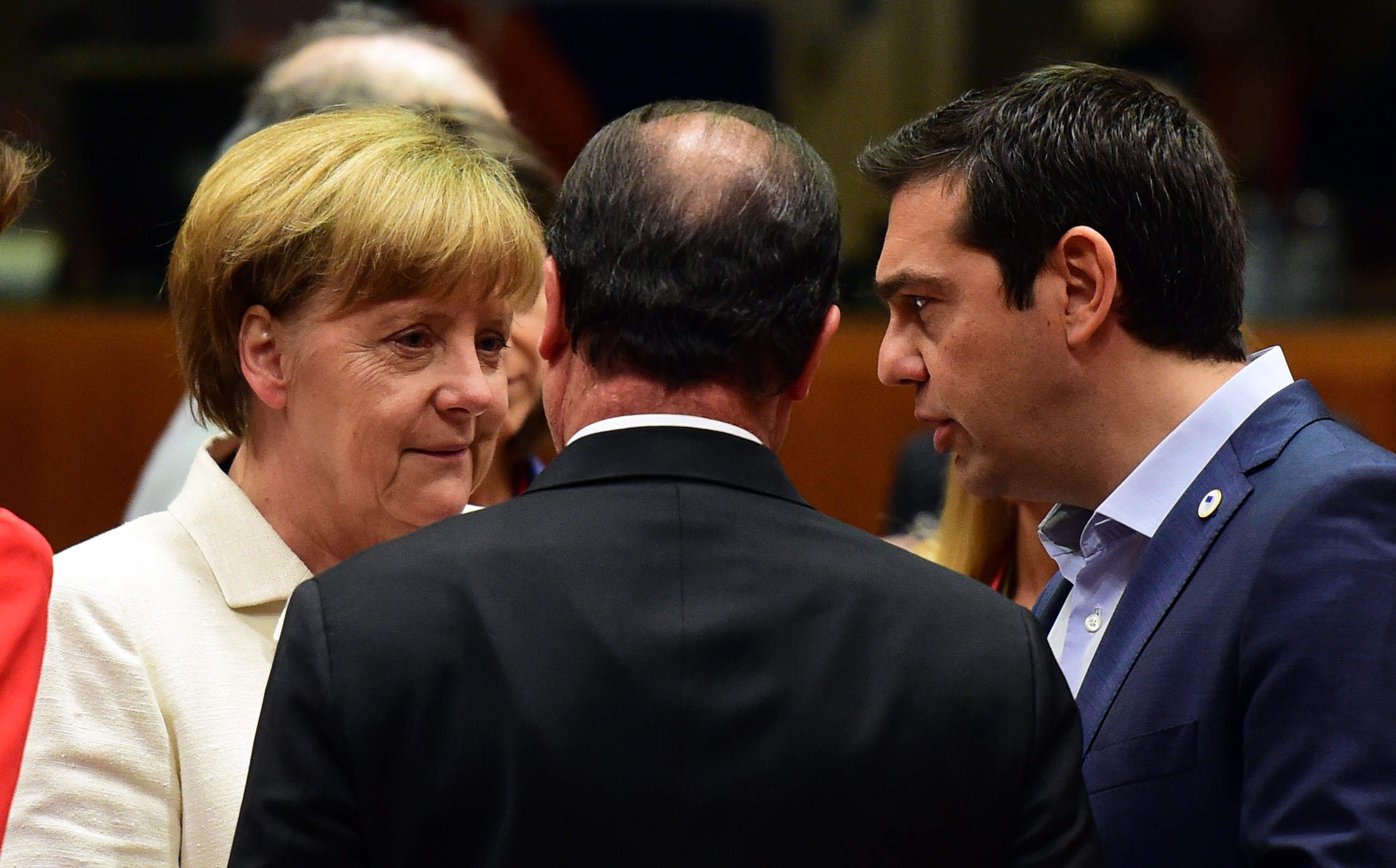After 17 hours of negotiations Greece and its creditors have just agreed a third bailout deal – and already there’s a new hashtag campaign on Twitter protesting that #ThisIsACoup. Paul Krugman agrees. Why so? The terms of a €86bn, three-year bailout involve sharper sending cuts than those rejected by the Greeks in their recent referendum and flogging some €50bn of Greek assets which would be held in trust by some suitable institution in Athens (not outside it, as had been mooted earlier). If Greece didn’t agree, it was going to be offered “swift negotiations on time-out from the Euro” (below). This seems to have focused minds.

And this time: no wriggle room, no referenda. The Greek parliament must endorse the entire package by Wednesday – including the reforms of VAT, pensions etc that were rejected in that referendum just a week ago. Many of those who took to the streets last weekend will now wonder why they bothered.

A week is a long time in politics: Greece celebrates a ‘no’ vote last weekend. They now face a far worse deal.
And even if the Greek parliament agrees, some European parliaments (including the Bundestag) will have to vote in favour of the bailout.
Krugman is furious, saying the deal was
presumably meant to be an offer Greece can’t accept; but even so, it’s a grotesque betrayal of everything the European project was supposed to stand for.
In fact, the deal embodies what the European project stands for: conformity, and agony for those whom the conformity does not suit. Yes, the new terms are tough. But if German taxpayers will be stumping up the cash, then they set the terms. That’s how loans work. No one is forcing Greece to accept, so it’s hardly a coup. At this stage there are, tragically, no good options left for Greece. If it had kept the drachma, it would not be in this mess.
We’re looking at the cruelty of a one-size-fits-all currency, which was always going to mean agony for the countries whose economies were capsized by being run on German interest rates. This created a property bubble in Spain and Ireland and massive deficits in Greece. So when the bubble bursts all power shifts to Germany, which alone has the money and power to sort things out.
The Euro seemed to work okay in a boom. But in a bust it has become, as William Hague so rightly said, a burning building with no exits.









Comments